Interviewing my mother about surviving the Holocaust
My mother is 89 and cancer is worming its way through her body. This is my last chance to learn the details of her life, which has known both beauty and the terrible brutality of the Holocaust
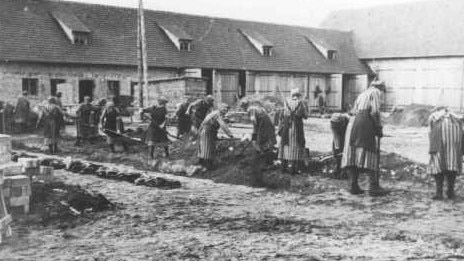
I have decided to interview my mother while she is still able to speak easily. Mira is 89 and cancer has been worming its way through her body for several years. She senses the days are running out, I can tell. It is my last chance to learn some of the details of her life, which has known both beauty and brutality. But more importantly, it is an opportunity to discover the origins of her deep belief. I am curious about the unwavering steadiness of her faith. As her pace to the end quickens, she is not scared that before her is an unknowable void; she does not entertain the notion that she might soon be stepping off into nothingness. That is because her experience of the universe is one where the inexplicable happens, and where the thread of magic skips across the edges of the darkest fabric.
When cancer struck, she couldn’t believe it. She actually couldn’t think of a plausible reason as to why she, of all her family members, should get cancer, and she would rack her brains for a precedent. “No one in my family ever had cancer,” she would say, forgetting that hardly anyone in her family had lived long enough to be sure. She was in the last six months of her life when my brother Fred suggested I interview her. As a journalist, asking questions was what I did. It wasn’t to learn her life story; I thought I already knew that, although I would be proved wrong. I wanted to distract her from the aches, the nausea, the tiredness. I wanted to distract myself from it too. And there was another thing: I wanted to be reminded of the mother I’d known my whole life, who was cheery and vital and formidable.
I questioned my mother in brief sittings, making sure I did not tire her out or overwhelm her. She was already too weary to stay seated at the dinner table for the duration of our Friday night Sabbath meal, so once she retired to the adjoining lounge room I began with my questions. During one of our first sessions, she related an anecdote I had never heard before.
I had always presumed that my mother’s childhood was bleak and austere, since she grew up in Eastern Europe at the time of World War II. But then it emerged that her parents had been avid theatre-goers and would see a musical performance whenever one was in town, their two daughters and three sons in tow. After each show, the family would come home and retire to their bedrooms, which were situated around a communal kitchen area – the parents in theirs, the brothers in one, the sisters in another. From their darkened rooms, someone would start singing a tune they recalled from that day’s performance. Of course, their memories weren’t perfect, so soon another family member would chime in, and then another, all trying to fill in the gaps. They would do this with every song they could remember, until a chorus of voices and laughter and harmonies filled the space, overlapping each other, words remembered and misremembered, the reprise becoming almost as sweet and memorable as the show itself.
This story brought me to tears, as it explained so much. When I was a teenager, friends often commented on my mother’s sunny demeanour, her ready smile. How did she manage all this, when she had been exposed to the horrors of war? When I realised she had been brought up in a house of song and joy, it made more sense to me; it was like finding the missing piece of a jigsaw puzzle that finally fit.
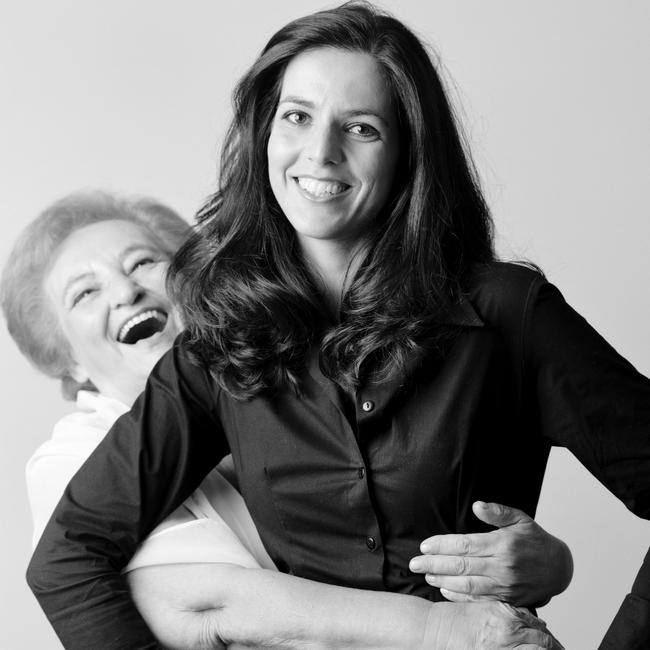
It was the end of August 1944, and the Allied invasions of Western Europe had been taking place since June. Underground resistance units were rising up against the Slovak government, which was collaborating with Germany. None of this made Mira’s parents, the Blumenstocks, feel any more secure. All around Slovakia, the atmosphere was heavy and dark.
My grandfather Dolfie understood that Hitler and the Nazis were getting more desperate; it was impossible to predict what they might do. With the exception of his eldest daughter Olga, he had managed to keep all in his immediate family from being deported, but time was running out. He tried to arrange an escape via Turkey, but that had been thwarted when the Germans entered Hungary. He therefore needed to execute a more serious plan for hiding.
Soon, everything was in place. On his go-ahead, a horse and carriage with driver – arranged by non-Jewish neighbours – would take his family to a town two hours away. The Blumenstocks would travel very early in the morning, disguised as peasants so as to not raise suspicion.
At their destination, everything had been set up so that the family could stay there for months, rather than days. They had prepared special clothes: their outer layers looked old and dirty, but underneath they would wear items that had money and pieces of gold sewn into them. My grandmother Genya had Napoleonic gold coins worth a small fortune, while American dollars were tucked inside a slit in the shoulder pads of Mira’s jacket. In the event of an emergency, or if anything unexpected were to happen before their departure, they were to grab their clothes and immediately get dressed.
Everything was ready, but Dolfie was not. His eldest son Heshek, preparing to join them, had been waylaid in Kežmarok. Every morning Heshek would call on the store’s telephone to say that he was stuck one day longer. Mira would listen to these calls and feel her face prickling with fresh terror. Something is going to happen. She tried to push away those thoughts, reminding herself of how often the family had dodged something bad, how their instincts had always been correct.
When I was growing up, my mother relied strongly on her intuition. “I have a bad feeling,” she would say, and her face would darken. She also did not believe in tempting fate in any way. Consequently, I grew up doing everything I could to avoid misfortune. I made wishes whenever possible: on first stars in the sky, on sneezes, when I threw coins into lakes, when an eyelash skittered across my cheek. I made those wishes to counteract anything that might go wrong, because I had a deep-seated fear that everything might go wrong. Mira certainly did not want to invoke bad luck in any way. Perhaps when you have witnessed the unluckiest of times, adhering to superstitions is a kind of insurance: it demonstrates the belief that one’s fortune can always be turned around.
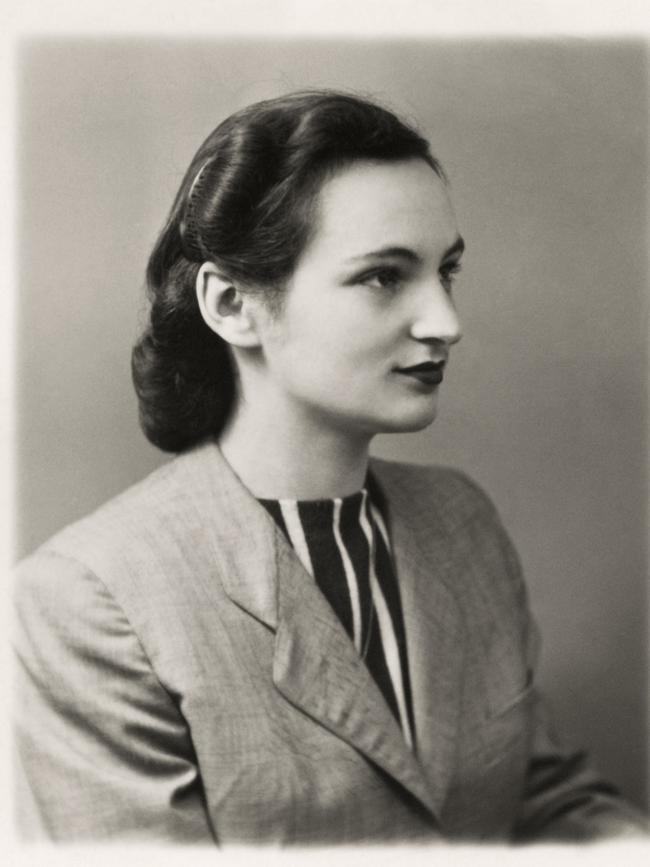
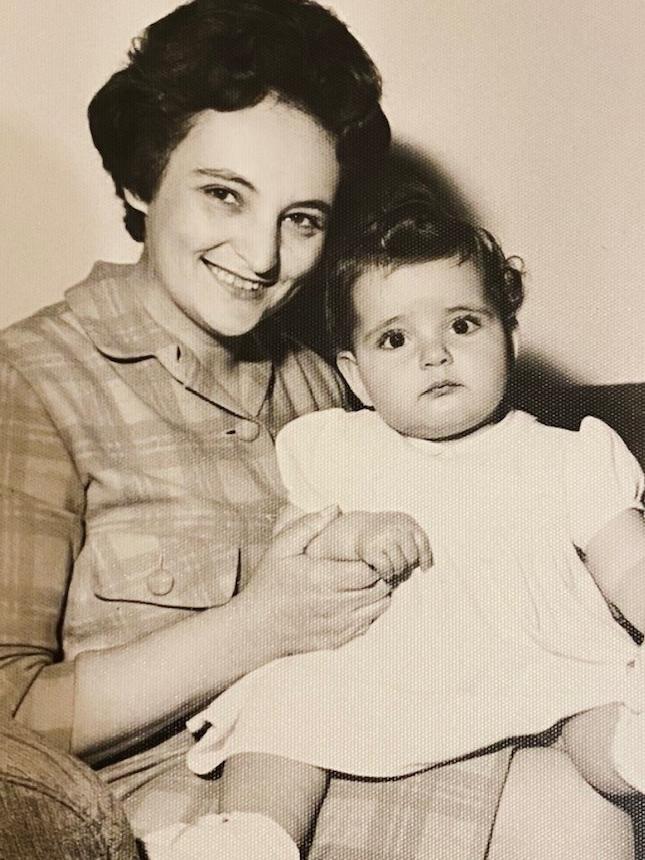
On this night Mira felt so strongly that danger was imminent that after the third of Heshek’s phone calls she asked her father: “Papa, why do we have to wait for Heshek? We should just go to the new hiding spot now. We will tell him where we are going. He can join us there. We shouldn’t wait for him to make the journey with us.” And so they decided that this would be the last evening in their home. For the past four nights, Dolfie, Genya, their son Yanchi and Mira had been sleeping in their barn’s loft, whose entrance Dolfie had extended so that all four could climb in. Feeling certain that they could be taken by German SS at any time, they no longer attended the store or stayed in the main house. They only came down to do necessary things, and did so quietly, creeping around as noiselessly as possible. Otherwise, they remained out of sight.
But on this night, September 3, they had a different routine. Their Jewish neighbours knew they were leaving, and wanted to bid them farewell. The Blumenstocks agreed that everyone should join them for one last supper. Although an 8pm curfew was in place, one could occasionally defy it because according to Mira, “after 11pm, there was not even a dog on the streets”. Around half a dozen families turned up; together they played cards, ate something light, embraced. Everyone wished Mira and her family well. The end of the war must not be too far off. They would see each other again when it was over. For a brief moment, Mira allowed herself to think of what that might be like. Perhaps they would soon be reunited with her sister. Perhaps, perhaps.
When the last person left, it was close to midnight. This was far later in the evening than they were used to going up to the loft, which was hard for Genya to manage. Dolfie was not much better at it and so made a decision: “Let’s sleep in the house tonight, in our bedroom. The horse and cart comes early to collect us. We will have to be ready at five in the morning. Let us sleep here for a few short hours.”
And so they undressed and made themselves comfortable. None of them could fall asleep easily, with the adrenaline that came with the anticipation of the next morning’s plans.
-
Then – suddenly – a loud noise broke the night’s stillness.
-
They all bolted upright. It was 1am. Someone was knocking on the gate to their garden and calling loudly, “Partisans!” And then, louder still: “Otworzy´c!”. Open up!
Mira held her breath. She started to put on her prepared clothes. It seemed like an emergency.
Many decades later, Mira would say something about this night. “Everything in life is a coincidence.” What she meant: if Heshek had managed to come home earlier. If their friends hadn’t stayed so late. If her family had not decided to sleep in their beds that night. If there had been no tip-off. If the officers had arrived in her town a day later. Coincidence? Bad luck? She never tried to assess it. Only to remember it as it happened.
“Otworzy´c! Otworzy´c!” The same words were shouted over and over from outside, but Dolfie felt no panic. “It’s all right, Yanchi,” he told his youngest son. “You can open the door.” Yanchi was dressed for bed, wearing only a nightshirt and no pants. He approached the entrance, when at once there came the racket of their front gate being broken down.
Dolfie now realised who had been calling out. Not partisans. Not Polish men. Armed German SS officers, fast approaching his house. Genya and Mira were already dressed in the clothes they had thought to put on with the first knock at the gate. But before Mira had time to do anything, she heard a bang. An unmistakable sound; it could not have been anything else. So loud that she still thought she could hear it long after it happened. She could feel its vibrations. She would feel it for days. She would feel it for years, for decades.
A gunshot.
Dolfie had seen the Germans at his front door, but not the one who was lurking outside. He had fled through the kitchen window and he was shot immediately. But he did not die immediately. He was still breathing, and began to moan. Genya knew that she was meant to run away and not look back. So did Mira. But neither of them could move, not with Dolfie still alive on their front path, and not with the moaning; his awful, unbearable moaning.
Genya ran to him, crying and calling out his name, “Dolfie, Dolfie.” She went to cradle him, to kiss him. The German who was standing closest pushed her with his rifle butt. Mira tried to go to her father, but she too was shoved away and that was another moment she always remembered bitterly. “He pushed me away with his gun, not even with his hand.”
By the time they were marched away, Dolfie lay dead on the ground, a pool of blood around him. Mira wondered what would happen to him. She had a strange thought as she felt the chill of the night: she hoped her father would not be too cold.
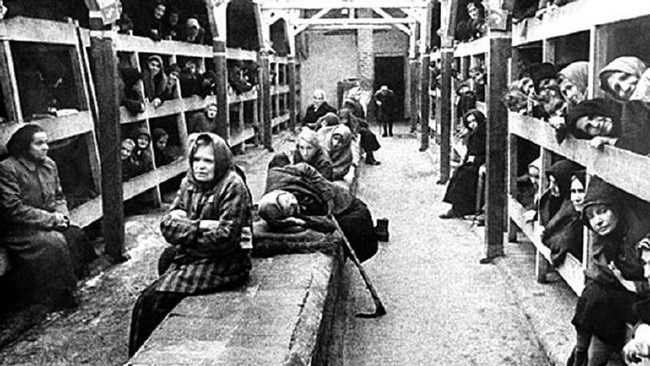
The Nazis operated more than 40,000 camps in World War II: Plaszow was situated in Krakow, in occupied Poland. Originally a forced labour camp, Plaszow had become an effective killing operation. Mira was 17 when she arrived at Plaszow. An SS officer shouted instructions: ‘Twenty men and twenty women will stay, and the rest of you will go to another camp because there is no room here.” Genya was the first to climb into the truck, and Mira stood behind, her hand on her mother’s back to help her up the steps. Then it was Mira’s turn. She had one foot on the truck when she was suddenly grabbed from behind. It was the SS guard. Mira dared to protest. “I want to go with my mother!” she cried.
At the time, Mira did not know where her mother was headed. In a different part of Plaszow lay an open pit, with a plank across the hole. Each of the men and women on that truck – including Genya – was ordered to strip naked before walking along the plank. Before they reached the end, shots were fired. If they were lucky, they died instantly, falling in the mass grave below, a heap of rotting bodies.
It was in February 1945 when Mira arrived at what would be her fourth and final concentration camp: Neustadt-Glewe, named for the nearby town in Germany. It was a satellite camp of Ravensbrück, and very small: it had only been established in September 1944, and Mira was one of around 5000 prisoners, mainly female, in a camp built for 900. Here she was alone; she was not sure how the rest of her family was faring.
When it came time for work assignments Mira volunteered to toil in the fields. On her first day, she walked with a group of prisoners to the fields, a route which took them through the back of several farmhouses. Behind one, they happened upon a large oil drum, around a metre tall, with a fire blazing within. The appetising smell filled their nostrils long before they drew close enough to see where it came from: resting above the drum was a mound of potatoes still in their skins, baking in the flames.
Accompanying the prisoners was a member of the Wehrmacht. So many of his ilk were later found guilty of committing systematic war crimes, but this soldier displayed a show of humanity. Mira believed he had known the drum was present before they arrived, even though he acted surprised and said, “Oh? Potatoes! Here! You can take some!” The women reached in, each grabbing a whole potato. Mira said a silent prayer of thanks to the German residents.
One month passed, then two. Mira continued to work in the fields, but as the days wore on, her body weakened. “Suddenly, my strength went. It was a very bad camp, and I deteriorated there very, very much,” she said. In the time she was there, one-fifth of the camp population would die, mainly from disease and starvation.
She had become a Muselmänn.
-
Her body was withered, skeletal, a shadow of a body.
-
The term also indicated something about that person’s desire to live. They often possessed no will at all: not to move, not to eat, not to care. What was the point? Those prisoners who continued to feel something only continued to suffer. The Muselmänner had found another route out, but they did not typically survive long. When a prisoner looked this way, they were shot, gassed or put to death by another method. Even this close to the war’s end, sick prisoners who were no longer capable of working at Neustadt-Glewe were killed.
By April, she had barely eaten proper food for three months. Her body was giving out. Pus-filled abscesses formed on her gums, and her teeth grew loose, wobbling when she touched them. The girl who slept next to her – a sweet, German Jewish teenager – cared for her as best she could. Most days, she brought rations to Mira’s side, and fed her slowly. Mira listened, but could not respond. “If some girls brought me a little bit of soup, I drank. If they didn’t, I didn’t care. At that stage, you don’t feel hunger. You don’t care about food, you don’t care about getting up – nothing.”
Days ticked past, and Mira longed for it all to be over. She still believed in God, and she still believed in an afterlife. The afterlife was now far more appealing. She longed to be reunited with her parents.
One night, late in April, Mira decided to pray. She said the Shema, the prayer she always said before going to sleep. She added a silent prayer of her own. Please, God, I am ready to die. Please take me to be with my family again.
She was dreaming about her mother. This dream was distinctive, uniquely vivid. She was back at her childhood home in Spišská Stará Ves, in Slovakia. Genya, who seemed to know the ordeals her daughter had faced, appeared by her side. In her hand, a warm bowl of soup. Mira felt weak, so Genya fed her the broth, spoonful by spoonful. Then Genya held her tight: “Meine Mira-le, it will be all right, it will be all right.” She soothed her daughter, and whispered something in her ear. Through the cobwebs of her dream, Mira felt the tingle of Genya’s breath. She reached out to her mother, for the softness of her mother’s arms. She would never have to leave this space. She was finally safe, after so long.
When Mira woke up on the barrack floor the next morning, she was stunned. First, it was hard to believe that she had lived through the night. But another thing: this dream had been singularly realistic. She was surprised to feel revived. In her heart, Mira did not believe this was just a dream. She was certain that Genya had managed to cross the threshold between life and death to be with her daughter, to help her. And she remembered what Genya whispered to her at the end: “Mira, stay alive until your birthday. Stay alive until then. On your birthday, I will come and save you.”
Mira had no idea how that could be possible; she had been in four camps for close to eight months, and she could not see a way out. But she had sufficient faith in the dream, and enough trust in her mother, to make a vow to herself. Her birthday was only four days away. She could hang on. And on that fourth day, everything changed. Her captors and tormentors – hearing that the prisoners at nearby Ravensbrück had been liberated – fled Neustadt-Glewe overnight. It took place in the late hours of April 30, 1945. Mira Blumenstock’s 18th birthday.
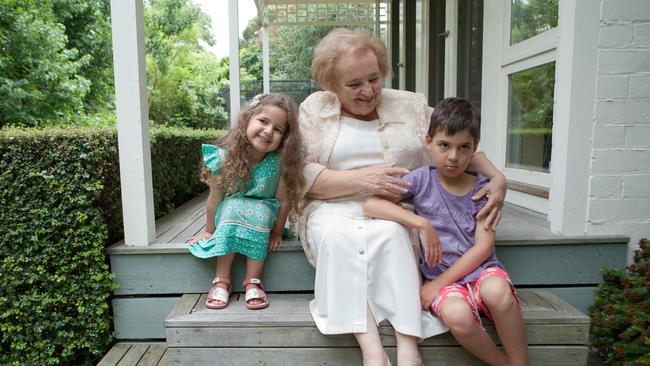
Half a century after the Holocaust, Mira gave her first video testimony about what had occurred so that her account could be catalogued and kept forever. She did so locally, in the Melbourne Holocaust Museum, but also overseas, at the US Holocaust Memorial Museum in Washington DC.
Details about her family would additionally live on in Yad Vashem, the World Holocaust Remembrance Center in Jerusalem. For hours, Mira spoke of the terrible things she had been through. The murder of her father. Of her mother. Of Olga, her sister. Of her brother Yanchi. The things she had seen: cruelty and shootings and hangings and sadism and rape. At the end, the interviewer asked one final question. “What do you think was the main thing that saved you?”
Mira did not have to think twice about her answer. “The goodness of people,” she replied. She had said it to me before: “In the Holocaust, I learned about the goodness of people.”
It was the one thing she held aloft, intact. Rather than zeroing in on the people who had tried to destroy her, she focused on those who had helped her, and there were many. Some of these people had risked their own lives to help her. Those were the people she thought about when the day’s light grew dim. Those were the people worth remembering.
Mira knew how to live, and she passed that knowledge on to her own children: our own inheritance. To spend it properly, we have to love as strongly as she once did, to feel as mightily, to celebrate as joyously, to give as selflessly. Once, people tried to extinguish her very being. They tried to snuff her out, as if she were a candle that one could pinch to stop from burning. And if not her body, then her being: her light, her nefesh, her soul, her spirit.
They did not even come close to doing so.
A Brilliant Life: My Mother’s Inspiring Story of Surviving the Holocaust by Rachelle Unreich (Hachette, $34.99) is out on November 1

To join the conversation, please log in. Don't have an account? Register
Join the conversation, you are commenting as Logout